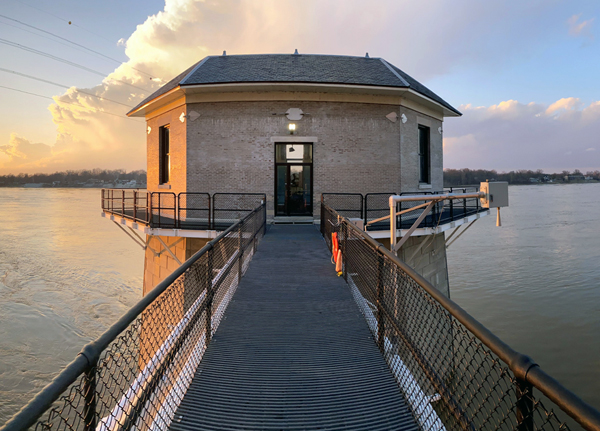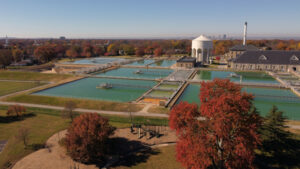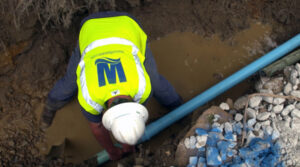 Safe, clean water is a resource we not only need, but rely on every day. Already this year, our country has experienced deadly tornadoes, windstorms, torrential flooding, several train derailments, and most recently in Louisville, a barge crash.
Safe, clean water is a resource we not only need, but rely on every day. Already this year, our country has experienced deadly tornadoes, windstorms, torrential flooding, several train derailments, and most recently in Louisville, a barge crash.
When disasters occur, the community wants to trust Louisville Water’s drinking water is safe.
“Our mission is to protect drinking water quality in Louisville. That’s from the source to the tap. Source water quality means everything to us,” said Chris Bobay, Louisville Water’s Manager of Water Quality and Compliance.
Bobay was part of a panel session hosted by Louisville Metro Public Health and Wellness on Wednesday morning. The topic: Ensuring Safe & Clean Water in the Event of a Natural Disaster.
While the February train derailment in East Palestine, Ohio, did not affect Louisville’s water, fears of contamination from chemicals spread quickly.
“Social media went viral. Lots of misinformation scared a lot of people”, Bobay said. “The levels that were detected in the Ohio River were never a threat to public health.”
 Bobay worked alongside Louisville Water’s communications team to convey that message to the community.
Bobay worked alongside Louisville Water’s communications team to convey that message to the community.
He told the panel, “We published health information and data on our website daily for customers. We continued enhanced monitoring during and after the event. Never a single detection of any of these chemicals were in the water at our Louisville intake.”
The Water Quality team completed an internal review of its response to the incident and plans to debrief with the Ohio River Valley Water Sanitation Commission (ORSANCO). Louisville Water has a longstanding relationship with ORSANCO, an interstate commission of water utilities who collaborate frequently about the water conditions and treatment strategies. Bobay referred to the network as the “watchdog” of the Ohio River.
“We’re not just there to investigate spills. We also do a lot of proactive monitoring and surveillance.”
Bobay said the Water Quality team’s job is around the clock.
“With our lab and our lab’s capacity, we operate every day of the year, looking at the river. We’re very much involved in surveillance of the river for not just chemical threats, but seasonal issues, harmful algae blooms, runoff issues, and aesthetic issues that might cause taste and odor changes for our water.”
Meghan Brown, the Emergency Preparedness Administrator for Louisville MSD, shared some of their proactive measures.
“We monitor river gauge levels, weather conditions year-round for levee safety, flood response, wastewater treatment, and drainage. That is no easy feat.” She added, “We have shaped some of our internal trainings to address potentially catastrophic emergencies in the community.”
 Louisville Water Manager of Security and Emergency Preparedness, Brad Hart, was part of the team that responded to flooding in eastern Kentucky last summer.
Louisville Water Manager of Security and Emergency Preparedness, Brad Hart, was part of the team that responded to flooding in eastern Kentucky last summer.
It was “disaster management in a real-time scenario. There were a lot of lessons from that, that we brought back to the community here.”
Everyone who spoke at Wednesday’s forum agreed that communicating with the public is essential.
Louisville Metro officials have created a Hazard Mitigation Plan to map out how to identify, assess, and respond to any risk for potential disasters.
To sign up for Louisville Emergency Notification System (LENS) text messages, text LENSAlert to 67283.
Louisville Water is always proud to share the story of how we deliver safe, high quality Louisville Pure Tap®! Contact us to schedule a speaker for your classroom, community event, health fair, or staff meeting.

